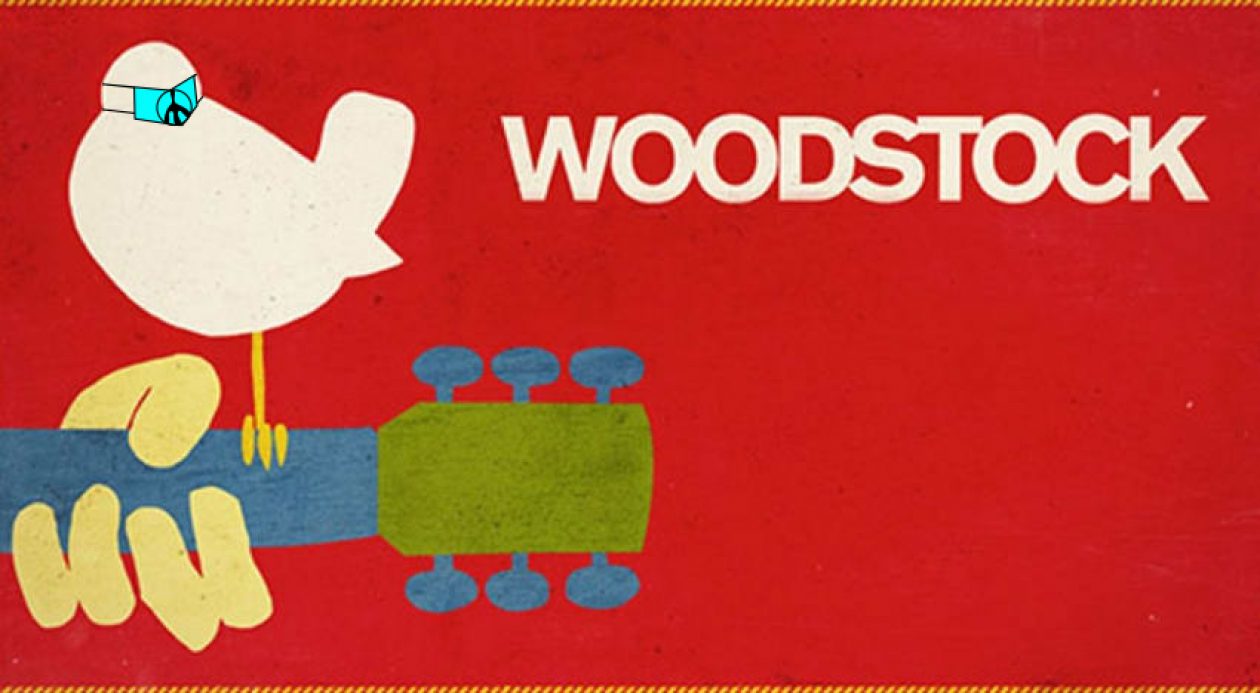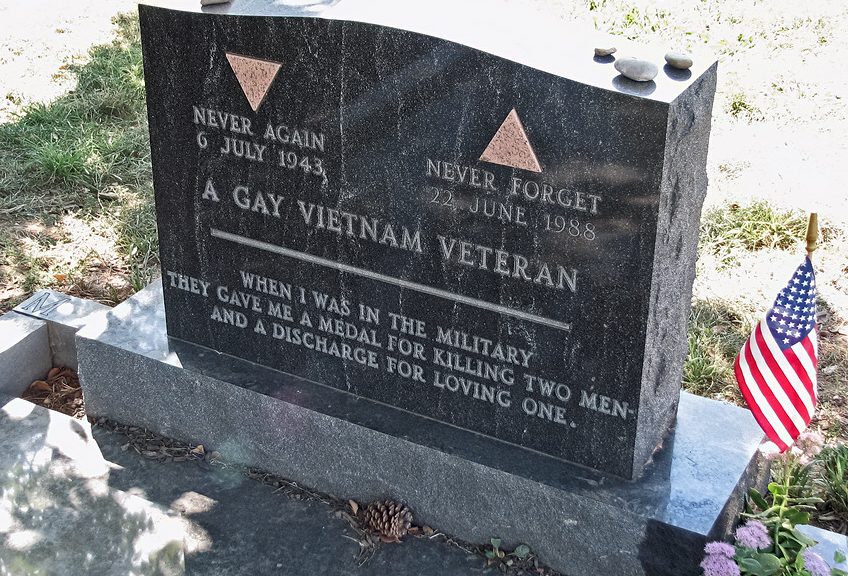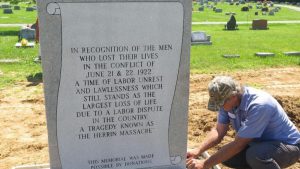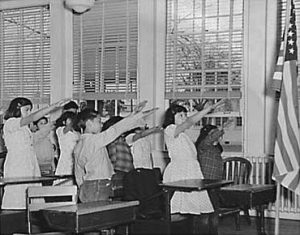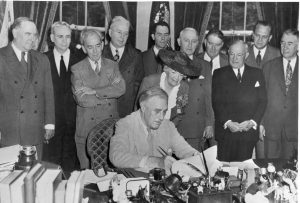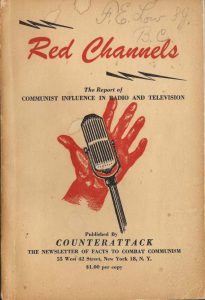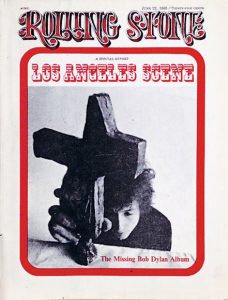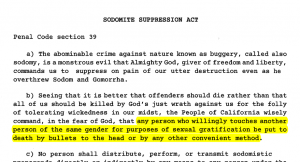June 22 Peace Love Art Activism
Black History
Nine Lynched
June 22, 1908: nine Black men were lynched in Sabine County, Texas, within a 24-hour period. The reign of racial terror began when a white farmer was shot to death in his home by an unknown assailant on the evening of June 21.
Six Black men—Jerry Evans, William Johnson, William Manuel, Moses Spellman, Cleveland Williams, and Frank Williams—were already in jail, accused of being involved in a completely unrelated shooting of another local white man. Early on the morning of June 22, a mob of about 200 white men broke into the jail and seized them from the police custody. Five of the men were hanged from a tree outside of the jail, and Mr. Williams, the sixth, was shot in the back as he tried to escape.
Later that night, marauding white men shot and killed a Black man named Bill McCoy near the white farmer’s home, and shot and killed two unidentified Black men and threw their bodies into a creek. A Black church and school house in the town were also burned to the ground. [EJI article] (next BH and Lynching, see Aug 14 or see AL2 for expanding lynching chronology)
Scottsboro Nine
June 22, 1931: Alabama Supreme Court stayed executions pending appeal.
June 22, 1933: Haywood Patterson granted a new trial on the basis that the prosecution’s testimony was uncorroborated. (see SB for expanded story)
Freedom Riders (Florida)
June 22, 1961: Judge John Rudd acquitted the local activists of the unlawful assembly charge but convicted the ten interfaith riders and sentenced them to thirty days in jail or a $500 fine. The riders appealed to the United States Supreme Court but were denied relief. In August 1964, nine of the interfaith riders returned to Tallahassee to serve their jail sentences. After they were released, the riders enjoyed a meal at the airport restaurant which had been desegregated by federal order just months after their convictions. (BH, see Aug 4; Freedom Riders, see Sept 22)
March on Washington
June 22, 1963: at a White House meeting with the nation’s top civil rights leaders, President Kennedy tried but failed to persuade the group to call off their planned March on Washington, scheduled for August 1963. Kennedy argued that a march would have a “negative impact” on Congress. Civil rights leader A. Philip Randolph, who had attempted to organize a march on Washington in 1941 (see January 14, 1941; June 18, 1941), replied, “Mr. President, the Negroes are already in the street. It is very likely impossible to get them off.”
At this same meeting, Kennedy took Rev. Martin Luther King aside and tried to persuade him to fire one of his top aides because he was alleged to be a Communist. Kennedy had not been supportive of the civil rights movement, and this was one more occasion when he sought to control the tempo of the movement. He did not, for example, give strong support to the 1961 Freedom Rides that began on May 4, 1961. (BH, see June 23; MLK, see Aug 28)
Wright v. Council of the City of Emporia
June 22, 1972: the US Supreme Court refused to allow public school systems to avoid desegregation by creating new, mostly or all-white “splinter districts.” [Justia article] (BH, see July 25, 1972; SD, see March 21, 1973)
137 SHOTS
June 22, 2015: U.S. District Judge Christopher Boyko gave the green light to a lawsuit filed against the city of Cleveland by police Sgt. Johnny Hamm who claimed he was wrongfully suspended for Facebook posts he made about the 2012 police chase and fatal shooting of Timothy Russell and Malissa Williams.
Boyko wrote that Hamm had a “plausible claim for deprivation” of his right to due process, if what Hamm alleges is true. Boyko wrote that the complaint over the Facebook posts was lodged by police Chief Calvin Williams and decided at a disciplinary hearing that was also presided over by the chief.
“These allegations raise the claim, beyond the speculative level, that Plaintiff was denied a meaningful hearing due to the bias and/or conflict of interest of the supervisory official, Chief of Police, Calvin D. Williams,” Boyko wrote. (see 137 for expanded story)
Church Burning
June 22, 2015: an arson fire occurred in the early morning hours at the College Hills Seventh Day Adventist Church, home to a predominately black congregation, in Knoxville, Tenn. (see June 23)
June 22 Peace Love Art Activism
US Labor History
Herrin, Ill
June 22, 1922: violence erupted during a coal mine strike at Herrin, Ill. A total of 36 were killed, 21 of them non-union miners. [American Heritage article] (see Nov 6)
June 22 Peace Love Art Activism
Pledge of Allegiance
June 22, 1942: The United States Congress officially recognized the Pledge for the first time, in the following form: I pledge allegiance to the flag of the United States of America, and to the Republic for which it stands, one Nation indivisible, with liberty and justice for all. (see Pledge for expanded story)
June 22 Peace Love Art Activism
Bonus March
June 22, 1944: Franklin D. Roosevelt signed the “G.I. Bill.” It was designed to compensate returning members of the armed services–known as G.I.s–for their efforts in World War II.
As the last of its sweeping New Deal reforms, Roosevelt’s administration created the G.I. Bill–officially the Servicemen’s Readjustment Act of 1944–hoping to avoid a relapse into the Great Depression after the war ended. FDR particularly wanted to prevent a repeat of the Bonus March of 1932, when 20,000 unemployed veterans and their families flocked in protest to Washington. The American Legion, a veteran’s organization, successfully fought for many of the provisions included in the bill, which gave returning servicemen access to unemployment compensation, low-interest home and business loans, and–most importantly–funding for education. By giving veterans money for tuition, living expenses, books, supplies and equipment, the G.I. Bill effectively transformed higher education in America.
June 22 Peace Love Art Activism
Cold War
Red Channels: The Report of Communist Influence in Radio and Television
June 22, 1950: American Business Consultants, Inc published the report that ostensibly listed alleged Communists and Communist sympathizers in the broadcast and entertainment industries. Two former FBI agents founded ABC. The report named 151 actors, writers, musicians, journalists, including such notable figures as Orson Welles, Leonard Bernstein, Pete Seeger, Edward G. Robinson, as well as many others. Many people named in the report were blacklisted from employment in their respective fields.
The Red Channels report operated on the principle of guilt by association, naming people because of groups they had once belonged to or meetings they had once attended, or friends they had. People were listed, for example, because they once signed a letter or petition sponsored by a group that was associated with the Communist Party. Naming people as being Communists or Communist sympathizers did not take into account individuals’ current political views or associations. (RS, see June 25; list, see May 14, 1951)
June 22 Peace Love Art Activism
June 22 Music et al
see Tony Sheridan and The Beatles for more
June 22 & 23, 1961: Tony Sheridan and The Beatles do first session recordings for Bert Kaempfert with the following songs: My Bonnie (Lies Over the Ocean); The Saints (When the Saints Go Marching In); Why; Cry For a Shadow; Ain’t She Sweet;Take Out Some Insurance On Me Baby and Nobody’s Child. (see July 3)
This Guy’s In Love With You
June 22 – July 19, 1968: “This Guy’s In Love With You” by Herb Alpert #1 on the Billboard Hot 100.
Bob Dylan
June 22, 1968: Rolling Stone magazine front page headline read: Dylan’s Basement Tapes Should Be Released. RS editor Jann Wenner had heard tapes of the many sessions Dylan and the Band had made at various locations around Woodstock, including the house—Big Pink—the Band used for playing. A bootleg version, The Great White Wonder, soon went into production. (see April 9, 1969)
Mark David Chapman
June 22, 1981: Mark David Chapman pleaded guilty to killing John Lennon. (see Aug 24)
June 22 Peace Love Art Activism
Judicial Milestone
Escobedo v. Illinois
June 22, 1964: the U.S. Supreme Court ruled that suspects have the right to an attorney while they are questioned by police. Danny Escobedo confessed to the murder of his brother-in-law after being detained for hours without access to his lawyer. Over the course of the interrogation, police denied Escobedo’s repeated requests to speak with his lawyer and denied the lawyer’s requests to speak with his client. The Supreme Court overturned Escobedo’s confession on the ground that it violated his “absolute right to remain silent”. [Oyez article] (see December 18, 1967)
June 22 Peace Love Art Activism
FREE SPEECH
Jacobellis v. Ohio
June 22, 1964: the US Supreme Court ruled whether the state of Ohio could, consistent with the First Amendment, ban the showing of a French film called The Lovers (Les Amants) which the state had deemed obscene. Nico Jacobellis, manager of the Heights Art Theatre in the Coventry Village neighborhood of Cleveland Heights, Ohio, was convicted and fined $2,500 by a judge of the Cuyahoga County Court of Common Pleas for exhibiting the film, and his conviction was upheld by the Supreme Court of Ohio.
The U.S. Supreme Court reversed the conviction, ruling that the film was not obscene and hence constitutionally protected. However, the Court could not agree as to a rationale, yielding four different opinions from the majority, with none garnering the support of more than two justices, as well as two dissenting opinions. The judgment of the Court was announced by William J. Brennan, but his opinion was joined only by Justice Arthur Goldberg. Justice Hugo Black, joined by Justice William O. Douglas, reiterated his well-known view that the First Amendment does not permit censorship of any kind. Chief Justice Earl Warren, in dissent, decried the confused state of the Court’s obscenity jurisprudence and argued that Ohio’s action was consistent with the Court’s decision in Roth v. United States (June 24, 1957) and furthered important state interests. Justice John Marshall Harlan II also dissented, believing that states should have “wide, but not federally unrestricted” power to ban obscene films.
The most famous opinion from Jacobellis, however, was Justice Potter Stewart’s concurrence, holding that the Constitution protected all obscenity except “hard-core pornography.” Stewart wrote, “I shall not today attempt further to define the kinds of material I understand to be embraced within that shorthand description; and perhaps I could never succeed in intelligibly doing so. But I know it when I see it, and the motion picture involved in this case is not that.” (emphasis added) [Justia article] (see Oct 1)
Frank Collin/Nazis
June 22, 1977: Frank Collin and his band of Nazis applied to Skokie officials for a permit to march in Skokie. (see June 24).
A year later
Exactly a year later, after many legal back and forths, Skokie Police Chief Kenneth Chamberlain issued a directive that the area bounded by Edens Highway, Howard Street, Skokie Blvd. and Main Street would be cordoned off to vehicular traffic on June 25. Only residents might enter into the cordoned off area. All vehicles would be subject to cursory searches for weapons. (see June 23)
R.A.V., Petitioner v. City of St. Paul, Minnesota
June 22, 1992: the US Supreme Court unanimously ruled that hate-crime laws that ban cross-burning and similar expressions of racial bias violate free-speech rights. The St. Paul Bias-Motivated Crime Ordinance was struck down both because it was overbroad, proscribing both “fighting words” and protected speech, and because the regulation was “content-based,” proscribing only activities which conveyed messages concerning particular topics. Judgment of the Supreme Court of Minnesota reversed. [Oyez article] (see June 11, 1993)
Student Rights
June 23, 2021: the Supreme Court ruled in favor of a former high school cheerleader who argued that she could not be punished by her public school for posting a profanity-laced caption on Snapchat when she was off school grounds.
The case involving a Pennsylvania teenager was closely watched to see how the court would handle the free speech rights of some 50 million public school children and the concerns of schools over off-campus and online speech that could amount to a disruption of the school’s mission or rise to the level of bullying or threats.
The 8-1 majority opinion was penned by Justice Stephen Breyer.
“It might be tempting to dismiss (the student’s) words as unworthy of the robust First Amendment protections discussed herein. But sometimes it is necessary to protect the superfluous in order to preserve the necessary,” Breyer wrote. [CNN article] (next SR, see June 23; next FS, see )
June 22 Peace Love Art Activism
Crime and Punishment
June 22, 1966: President Lyndon Johnson signed into law on this day the historic federal Bail Reform Act, which created a presumption of release before trial for federal criminal suspects. The law largely replaced the old money bail system, which meant that poor defendants had to remain in jail while awaiting trial. Perhaps most important, the federal law inspired similar bail reform laws in the 50 states. Attorney General Robert Kennedy had set in motion bail reform on May 27, 1964, at a national bail reform conference.
On signing the law, President Johnson affirmed the constitutional rights of criminal suspects, as he had previously done, on March 8, 1965. Johnson is the only president to have publicly supported the constitutional rights of criminal suspects.
The presumption of a right to bail has been severely undermined by the policy of preventive detention, which allows judges to deny to criminal defendants they believe are “dangerous.” See President Richard Nixon’s endorsement of preventive detention on January 31, 1969, shortly after he took office, and the Supreme Court decision on May 26, 1987 which upheld the constitutionality of the federal preventive detention law. (see May 15, 1967)
June 22 Peace Love Art Activism
Environmental Issues
Cuyahoga River
June 22, 1969: oil-sodden floating debris on the Cuyahoga River (Cleveland, OH) ignited (perhaps by sparks from a passing train) and burned with flames reported up to five stories high. Although fire-fighters extinguished the blaze in a half-hour or so, it caused $50,000 in damage. For a century the Cleveland, Ohio river had been an open sewer for industrial waste, through the times when factory production seemed more important than worrying about the environment. Several fires had happened in the prior hundred years, but attitudes changed to outrage as this time, national attention was aroused. It became one of several disasters that led to the Clean Water Act and the Environmental Protection Agency (EPA). (next EI, see Nov 20; see Cuyahoga for expanded story)
Santa Barbara oil spill
June 22, 2015: “…of the 96.5 miles of shoreline surveyed in Santa Barbara and Ventura counties, 91 percent have met cleanup goals,” the unified command said in its latest operational update. (EI, see June 29; Santa Barbara, see July 16)
June 22 Peace Love Art Activism
Voting Rights
June 22, 1970: President Richard Nixon signed an extension of the 1965 Voting Rights Act, which included a provision granting 18-year-olds the right to vote in federal and state elections. (This was not the 26th amendment) (see Dec 21)
June 22 Peace Love Art Activism
Watergate Scandal
June 22, 1977: John N. Mitchell became the first former U.S. Attorney General to go to prison as he began serving a sentence for his role in the Watergate cover-up. (see Watergate for expanded story)
June 22 Peace Love Art Activism
LGBTQ
Leonard Matlovich
June 22, 1988: less than a month before his 45th birthday, Leonard Matlovich died in Los Angeles of complications from HIV/AIDS. By his choice, his name does not appear on his gravestone. (see Nov 19)
Execution of gays
June 22, 2015: California Superior Judge Raymond M. Cadei ruled against a proposed ballot initiative authorizing the execution of gay and lesbian people, calling the suggested measure “unconstitutional on its face.”
The proposed Sodomite Suppression Act called for “any person who willingly touches another person of the same gender for purposes of sexual gratification be put to death by bullets to the head or by any other convenient method.” The measure also would have outlawed advocating gay rights to minors, punishable by 10 years in prison and permanent expulsion from California.
While the measure was publicly ridiculed and stood little chance of collecting more than 365,000 signatures necessary to appear on the 2016 ballot, California Attorney General Kamala Harris was required by state law to circulate the proposed initiative because its backer, attorney Matt McLaughlin, paid a $200 filing fee ahead of the February deadline. In March, Harris asked for legal permission to toss out the initiative. (see June 23)
June 22 Peace Love Art Activism
CLINTON IMPEACHMENT
June 22, 1998
- Kramer Books and lawyers for Monica Lewinsky strike a deal in which records of Lewinsky’s purchases are submitted to Ken Starr’s office by her lawyers and not the book store, thereby allowing the book store to maintain it stood up for the First Amendment.
- CNN learned that Ken Starr might be willing to make an immunity deal without requiring that Monica Lewinsky plead guilty to some charge against her if they decide that she is cooperating fully with the prosecution. (see Clinton for expanded story)
June 22 Peace Love Art Activism
Sexual Abuse of Children
June 22, 2012: Msgr. William J. Lynn, a former archbishop’s aide, was found guilty of one count of endangering children, becoming the first senior official of the Roman Catholic Church in the United States to be convicted of covering up child sexual abuses by priests under his supervision. (SA, see October 8, 2012; Lynn, see December 26, 2013)
June 22 Peace Love Art Activism
Environmental Issues
June 22, 2015: “…of the 96.5 miles of shoreline surveyed in Santa Barbara and Ventura counties, 91 percent have met cleanup goals,” the unified command said in its latest operational update. (EI, see June 29; Santa Barbara, see July 16)
June 22 Peace Love Art Activism
Fourth Amendment
City of Los Angeles v. Patel
June 22, 2015: in City of Los Angeles v. Patel the Supreme Court considered a Los Angeles city ordinance that allowed police to walk into a hotel, request a copy of the guest registry, and look through the names of everyone who had checked in—all without a warrant.
Naranjibhai and Ramilaben Patel, two Los Angeles hotel owners, challenged the law as authorizing a regime of unconstitutional searches. After considering arguments from the city, the Patels, the Solicitor General, and amici including EFF, the Supreme Court struck down the law (5 – 4) as an unconstitutional invasion on the rights of the hotel owners because “it penalizes them for declining to turn over their records without affording them any opportunity for pre-compliance review.” [Oyez article] (see June 5, 2017)
Carpenter v. United States
June 22, 2018: in Carpenter v. United States, the US Supreme Court decided 5 – 4 that law authorities must generally have a search warrent for sustained cellphone locatoin information.
Chief Justice John Roberts pointed to “seismic shifts in digital technology,” which allowed wireless carriers to collect “deeply revealing” information about cellphone owners that should be protected by the Constitution.
The issue came to the Supreme Court in the case of Timothy Carpenter, who was convicted and sentenced to almost 116 years in prison for his role in a series of armed robberies in Ohio and Michigan. Law-enforcement officials used cell-site records from his cellphone provider to place him in the vicinity of the crimes, but Carpenter argued that the jury should not hear about those records because the government had not obtained a warrant for them. (see April 22, 2019)
June 22 Peace Love Art Activism
Immigration History
Trump Suspends Visas Allowing Hundreds of Thousands of Foreigners to Work in the U.S.
June 22, 2020: the NY times reported that President Trump temporarily suspended new work visas and barred hundreds of thousands of foreigners from seeking employment in the United States, part of a broad effort to limit the entry of immigrants into the country.
In the sweeping order Trump blocked visas for a wide variety of jobs, including those for computer programmers and other skilled workers who enter the country under the H-1B visa, as well as those for seasonal workers in the hospitality industry, students on work-study summer programs and au pairs who arrive under other auspices.
The order also restricts the ability of American companies with global operations and international companies with U.S. branches to transfer foreign executives and other employees to the United States for months or yearslong stints. And it blocks the spouses of foreigners who are employed at companies in the United States.
Officials said the ban on worker visas, combined with extending restrictions on the issuance of new green cards, would keep as many as 525,000 foreign workers out of the country for the rest of the year. (next IH, see July 6; suspension, see Oct 1)
June 22 Peace Love Art Activism
Cannabis
June 22, 2021: Connecticut Gov. Ned Lamont (D) signed a marijuana legalization bill. A top staffer said in an email to equity advocates that there’s “still much work to be done” to ensure that the law upholds principles of social justice and ensures that disproportionately impacted communities are empowered to participate in the industry. (next C see June 28 or see CAC for expanded chronology)
